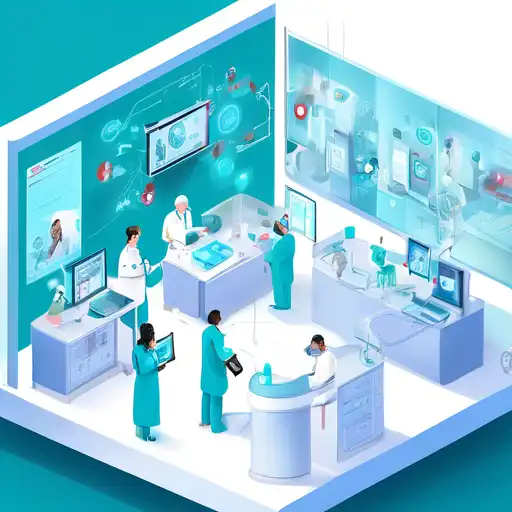The Revolutionary Role of IoT in Healthcare
The Internet of Things (IoT) is revolutionizing healthcare services by enabling smarter, more efficient, and personalized patient care. By connecting devices and systems, IoT is paving the way for advancements that were once considered futuristic. This article explores the transformative impact of IoT on healthcare, highlighting key benefits and real-world applications.
Enhanced Patient Monitoring
One of the most significant contributions of IoT in healthcare is the ability to monitor patients in real-time. Wearable devices and sensors can track vital signs such as heart rate, blood pressure, and glucose levels, transmitting this data directly to healthcare providers. This continuous monitoring allows for timely interventions, reducing hospital readmissions and improving patient outcomes.
Improved Medication Management
IoT-enabled smart pill bottles and dispensers ensure patients adhere to their medication schedules. These devices can alert patients when it's time to take their medication and notify caregivers if doses are missed. This technology is particularly beneficial for elderly patients and those with chronic conditions, enhancing medication adherence and overall health.
Streamlined Hospital Operations
IoT is also transforming hospital operations by optimizing resource utilization and reducing costs. Smart beds equipped with sensors can monitor patient movements and adjust positions to prevent bedsores. Additionally, IoT-enabled asset tracking systems help hospitals locate medical equipment quickly, improving efficiency and reducing downtime.
Remote Patient Care
With IoT, healthcare providers can offer remote consultations and monitor patients outside traditional clinical settings. Telemedicine platforms, powered by IoT, enable virtual visits, making healthcare more accessible, especially for individuals in rural or underserved areas. This not only improves patient convenience but also reduces the burden on healthcare facilities.
Data-Driven Decision Making
The vast amount of data generated by IoT devices provides valuable insights for healthcare providers. Advanced analytics and machine learning algorithms can analyze this data to identify trends, predict outbreaks, and personalize treatment plans. This data-driven approach enhances diagnostic accuracy and treatment efficacy, leading to better patient care.
Challenges and Considerations
While IoT offers numerous benefits, it also presents challenges such as data security and privacy concerns. Ensuring the confidentiality and integrity of patient data is paramount. Healthcare organizations must implement robust cybersecurity measures and comply with regulations like HIPAA to protect sensitive information.
Future Prospects
The future of IoT in healthcare is promising, with ongoing advancements in AI, 5G, and edge computing. These technologies will further enhance the capabilities of IoT, enabling more sophisticated applications and improving healthcare delivery. As IoT continues to evolve, its impact on healthcare will only grow, offering endless possibilities for innovation.
In conclusion, IoT is transforming healthcare by improving patient monitoring, medication management, hospital operations, and remote care. By leveraging IoT, healthcare providers can deliver more efficient, personalized, and accessible services. However, addressing challenges related to data security and privacy is crucial to fully realize the potential of IoT in healthcare.
